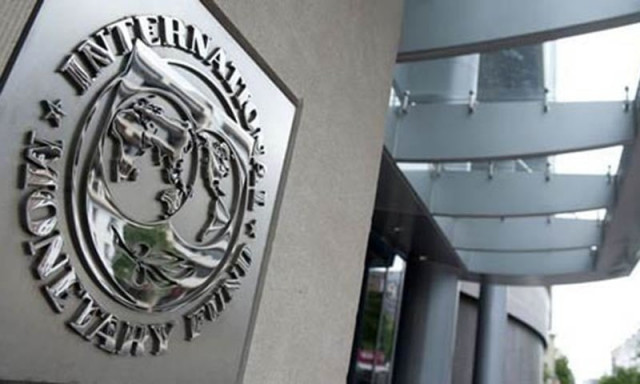The IMF and Pakistan
The IMF cleared payment of $102 million in what was the last loan of the three-year Extended Fund Facility

PHOTO: AFP

However, the programme was never entirely about budget deficits and controlling spending. The EFF was meant to enable Pakistan pass through a crisis that saw the current account deficit and the budget deficit run sky high, putting the country at risk of default on its international debt payments. The economy was facing multiple issues including energy woes, which remain persistent, and a security situation that left investors running for cover. Slowly, but surely, some progress was made — aided by the millions of dollars that flowed into the country every few months. Help came along through exogenous factors such as plummeting oil prices that helped narrow the trade deficit, compensating for the fall in exports. The little progress enabled the finance minister to tap into international markets as his aim to increase foreign exchange reserves got ambitious. Billions were raised through Eurobonds and international debt obligations increased. On the other hand, low oil prices controlled the pace of inflation, which then enabled the government to decrease interest rates to historically low levels. This, in turn, helped the government borrow even more from private banks which were more than willing to trade in riskless securities that guaranteed higher returns. Subsidies were cut and spending on infrastructure was limited to specific areas. Gas and electricity tariffs were increased, but the public did not entirely feel the pinch as the low pace of inflation kept expenses in check. It was all working out for the government, which increased tax rates to unprecedented levels and drew a more prominent distinction between those who file tax returns and those who don’t. Revenue sources from all segments were tapped. The corporate sector was tapped through a super tax for Operation Zarb-e-Azb, while individuals were asked to pay withholding taxes that accounted for a major portion of the revenue.
But during the three years, the government’s commitments to the IMF were met at a slow pace. The privatisation of loss-making, state-owned entities was one of the hallmarks of the EFF, which promised reforms that would reduce the need for future bailouts. This area remained neglected. Attempts to privatise PIA took an ugly turn. Power distribution companies were reformed only minimally and their privatisation was shelved, reportedly by the prime minister himself amid fears of a backlash come election time. Stakes in profitable banks were sold, foregoing future income from these entities, and the proceeds were used to finance the budget. Stipends for BISP beneficiaries were raised, meeting one commitment to the IMF, but also raising questions over the state of those living below the poverty line.
Was the programme a success? Of course, it was. The IMF continued to disburse loans to a nuclear-armed state that was rife with uncertainty, while the country itself continued to show some, if not entirely meaningful, progress. The IMF programme held the country accountable at some level and that kept the government on its toes. Even then, a total of 16 waivers had to be granted. What would happen now that the programme is over is anybody’s guess.
Published in The Express Tribune, August 8th, 2016.
Like Opinion & Editorial on Facebook, follow @ETOpEd on Twitter to receive all updates on all our daily pieces.














COMMENTS
Comments are moderated and generally will be posted if they are on-topic and not abusive.
For more information, please see our Comments FAQ